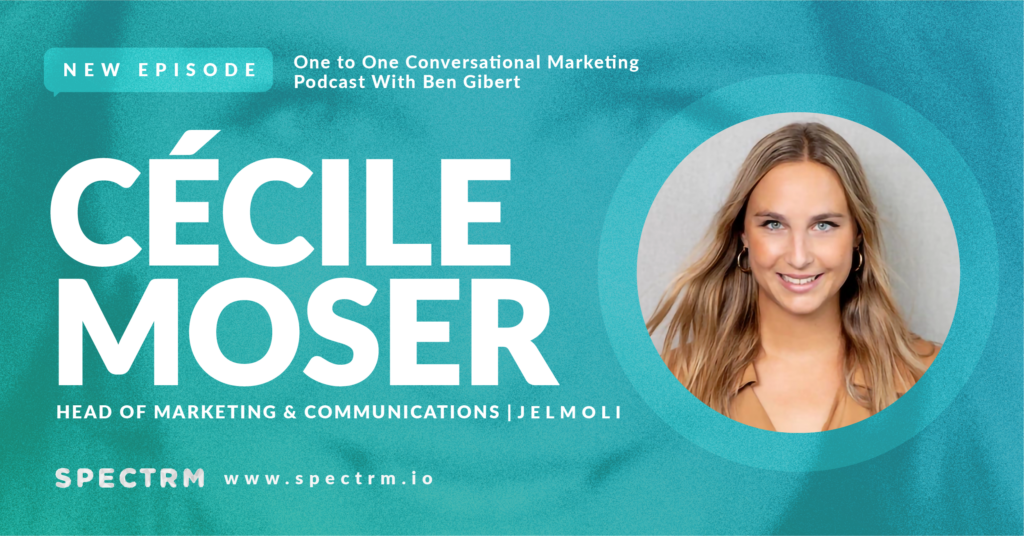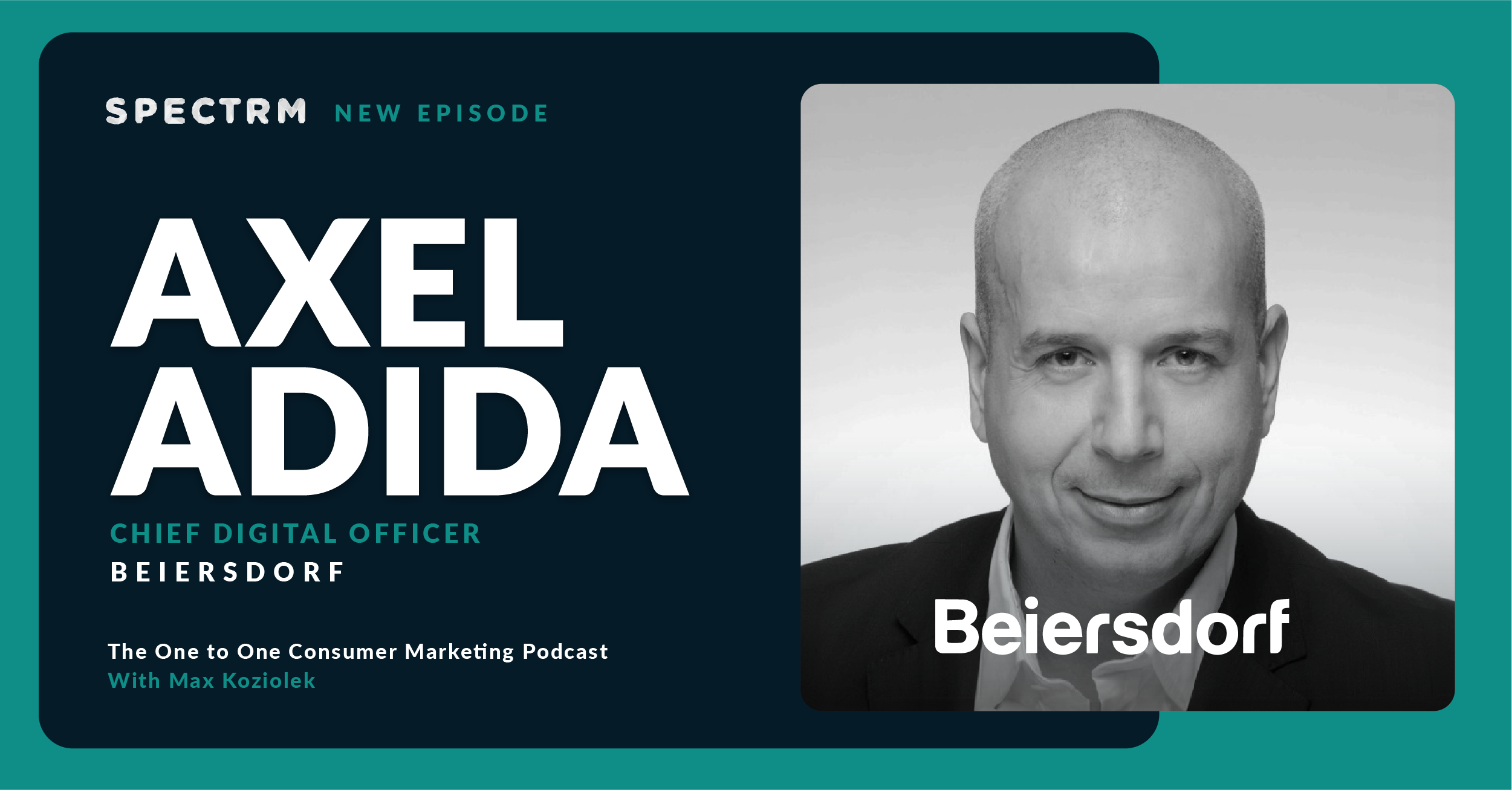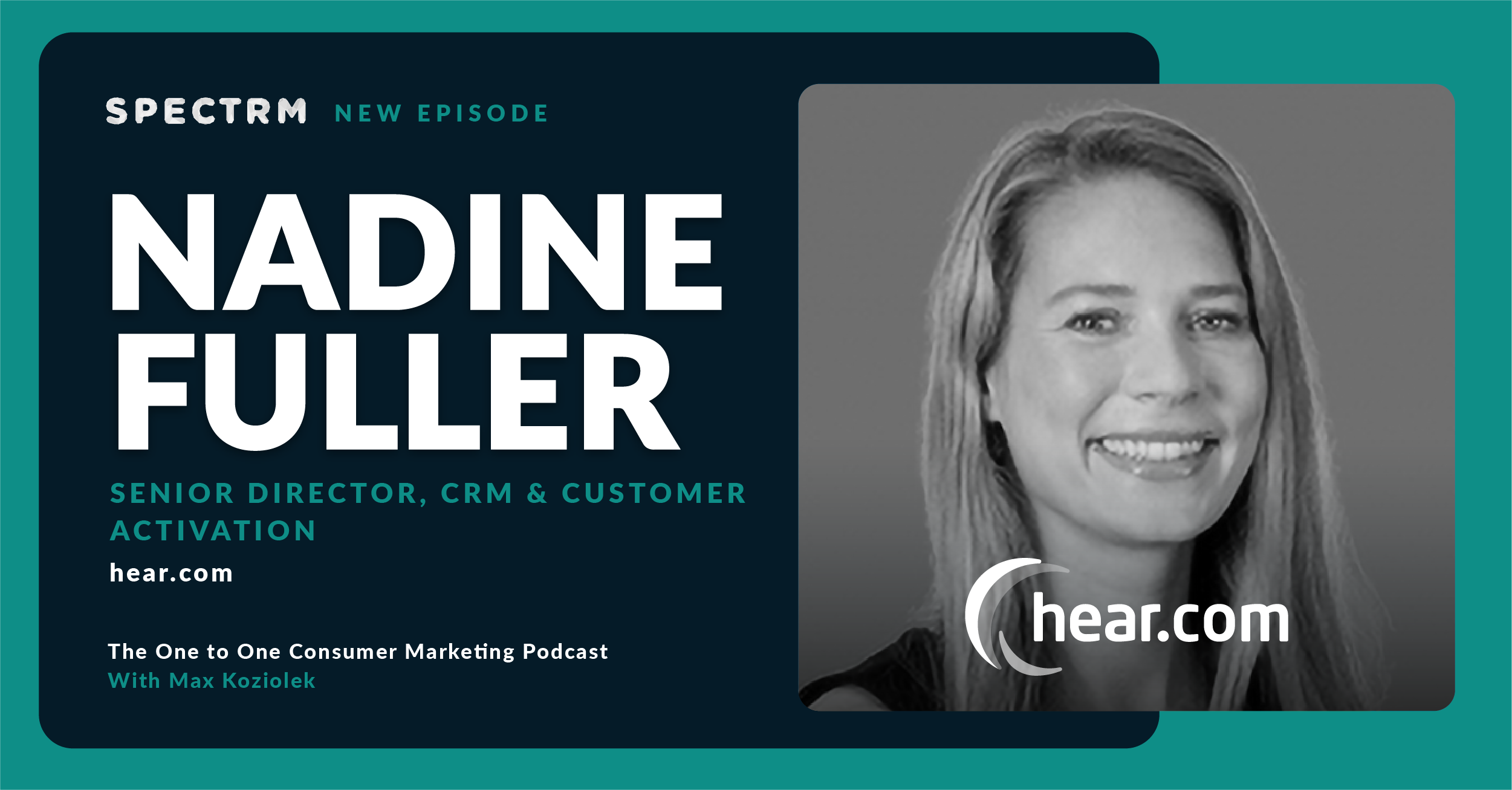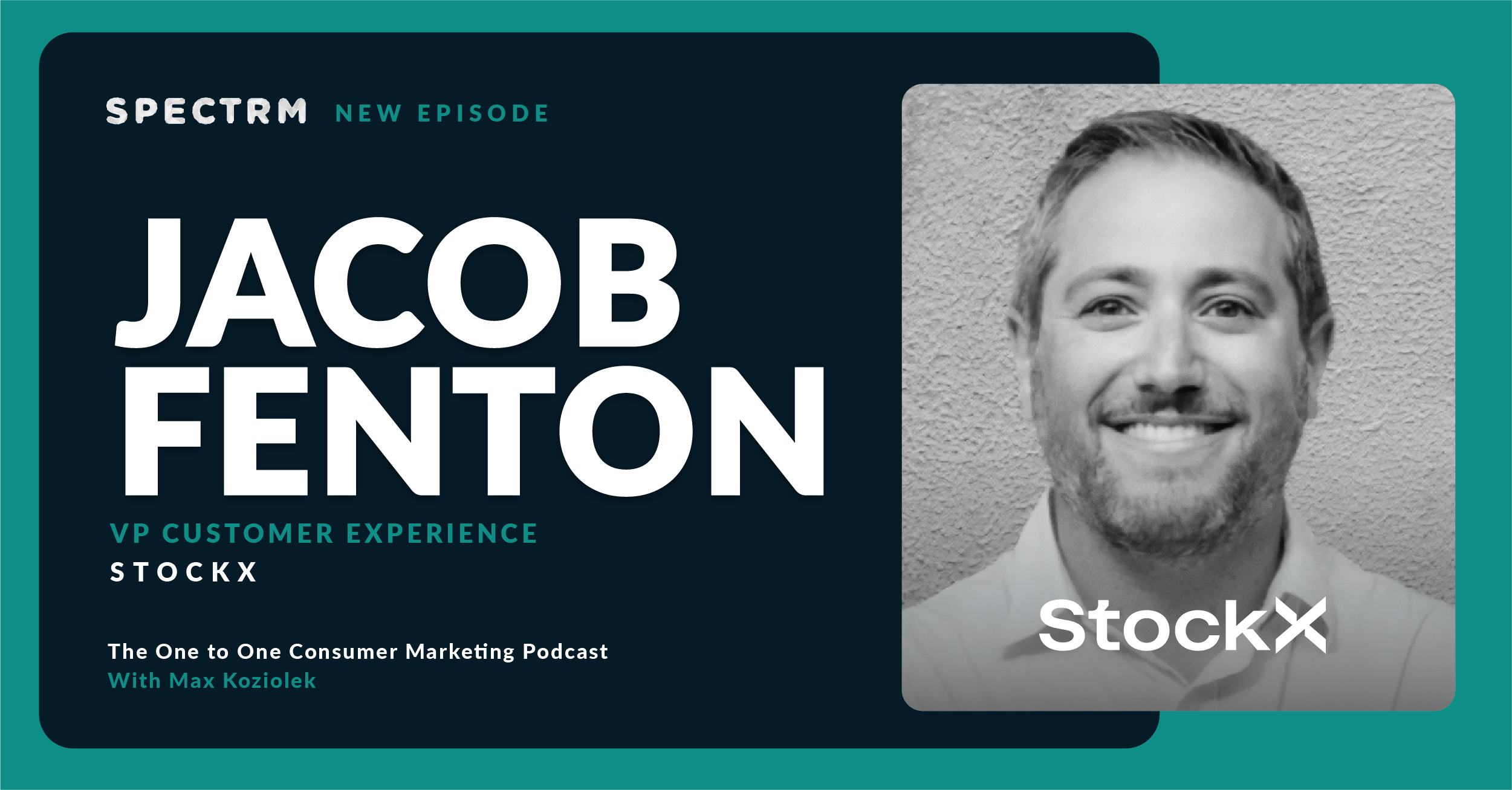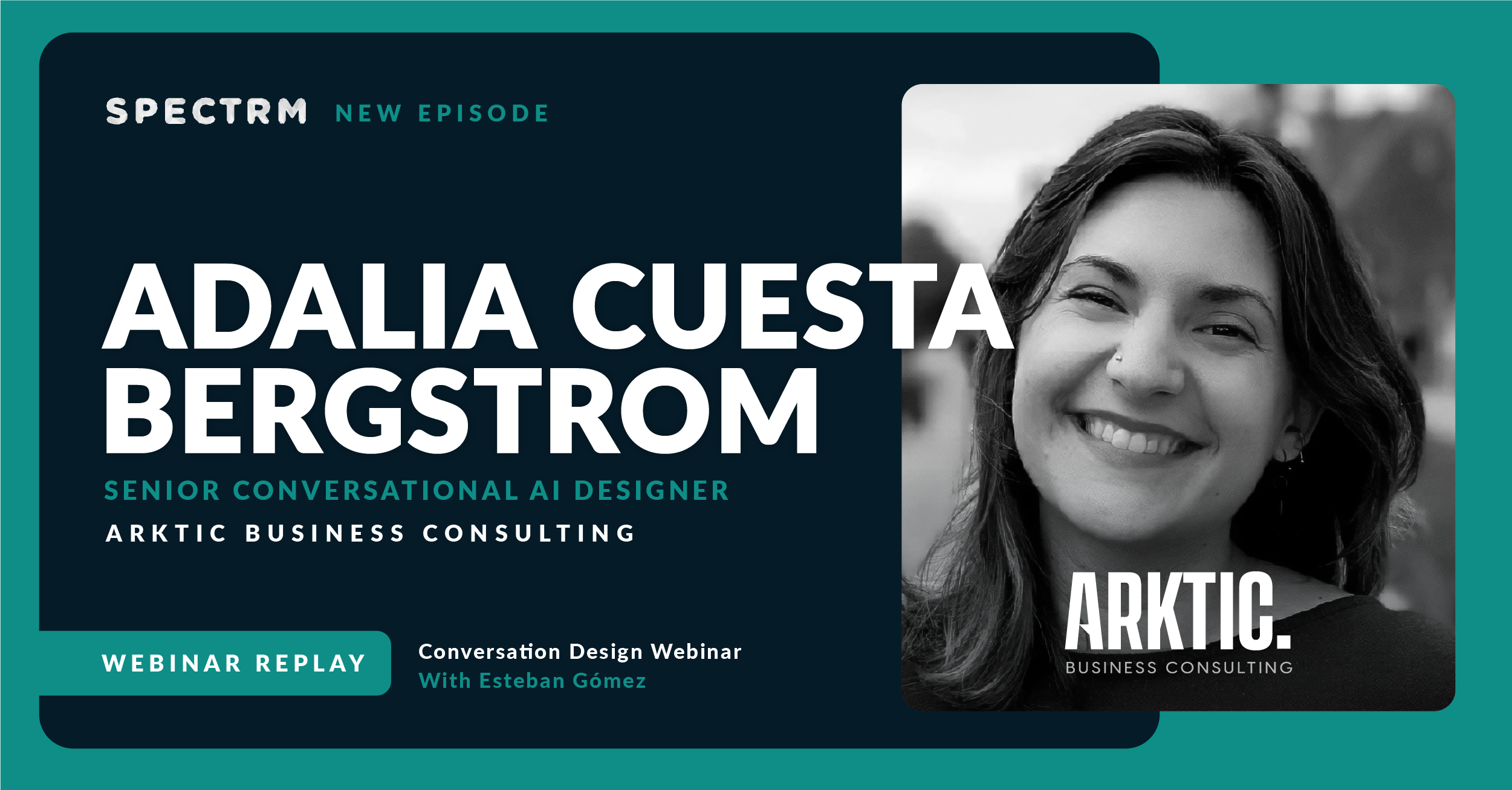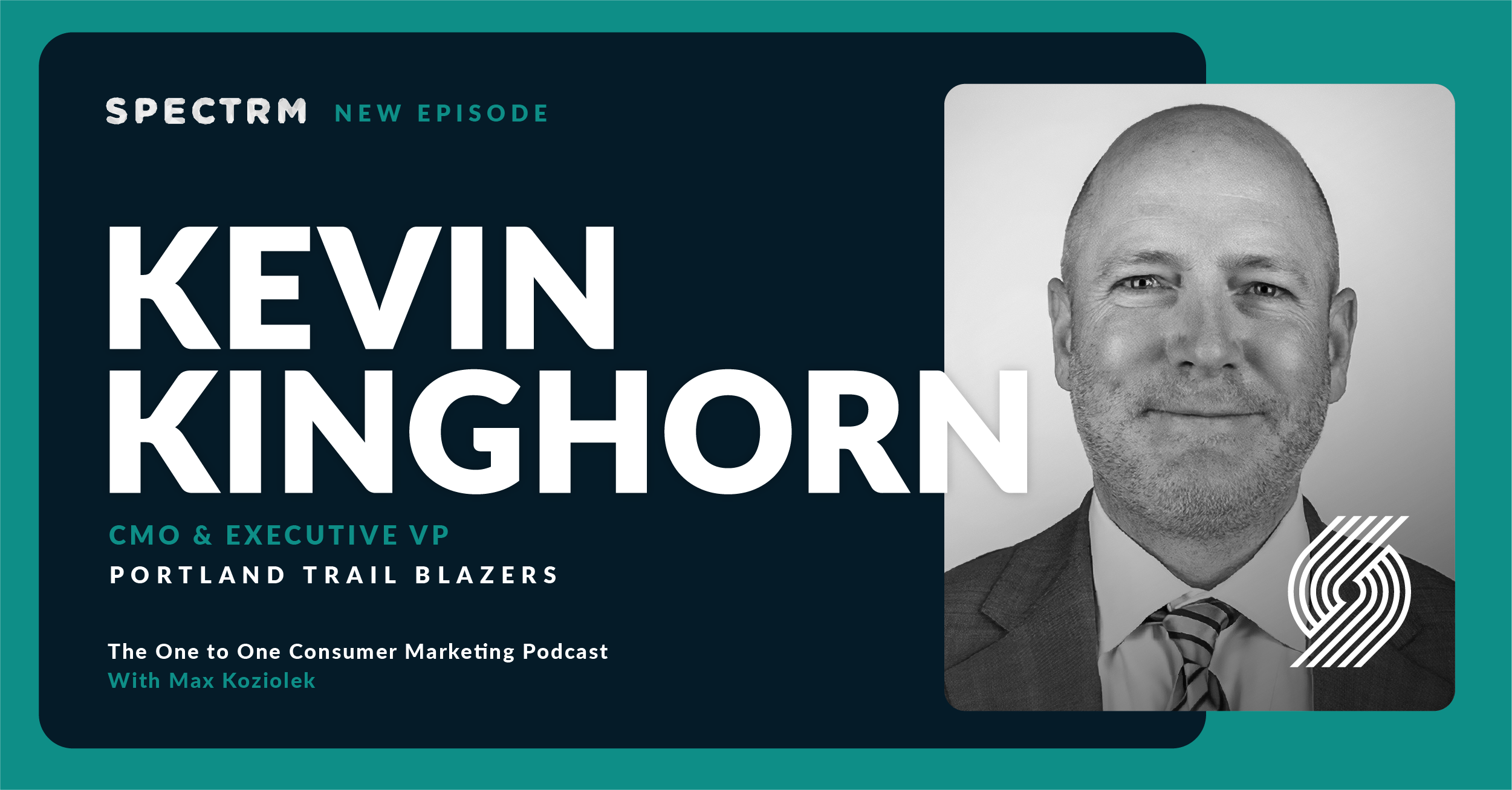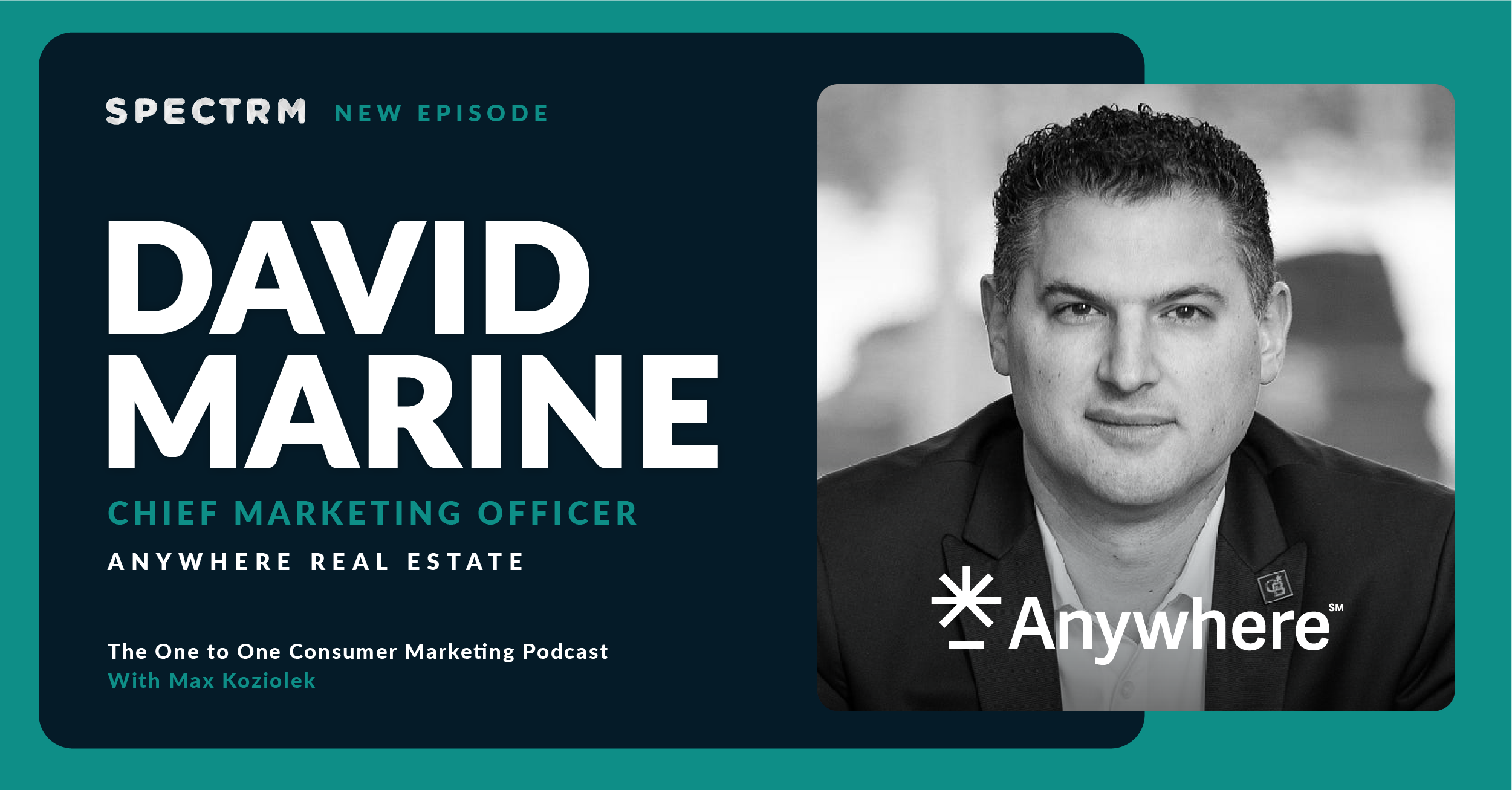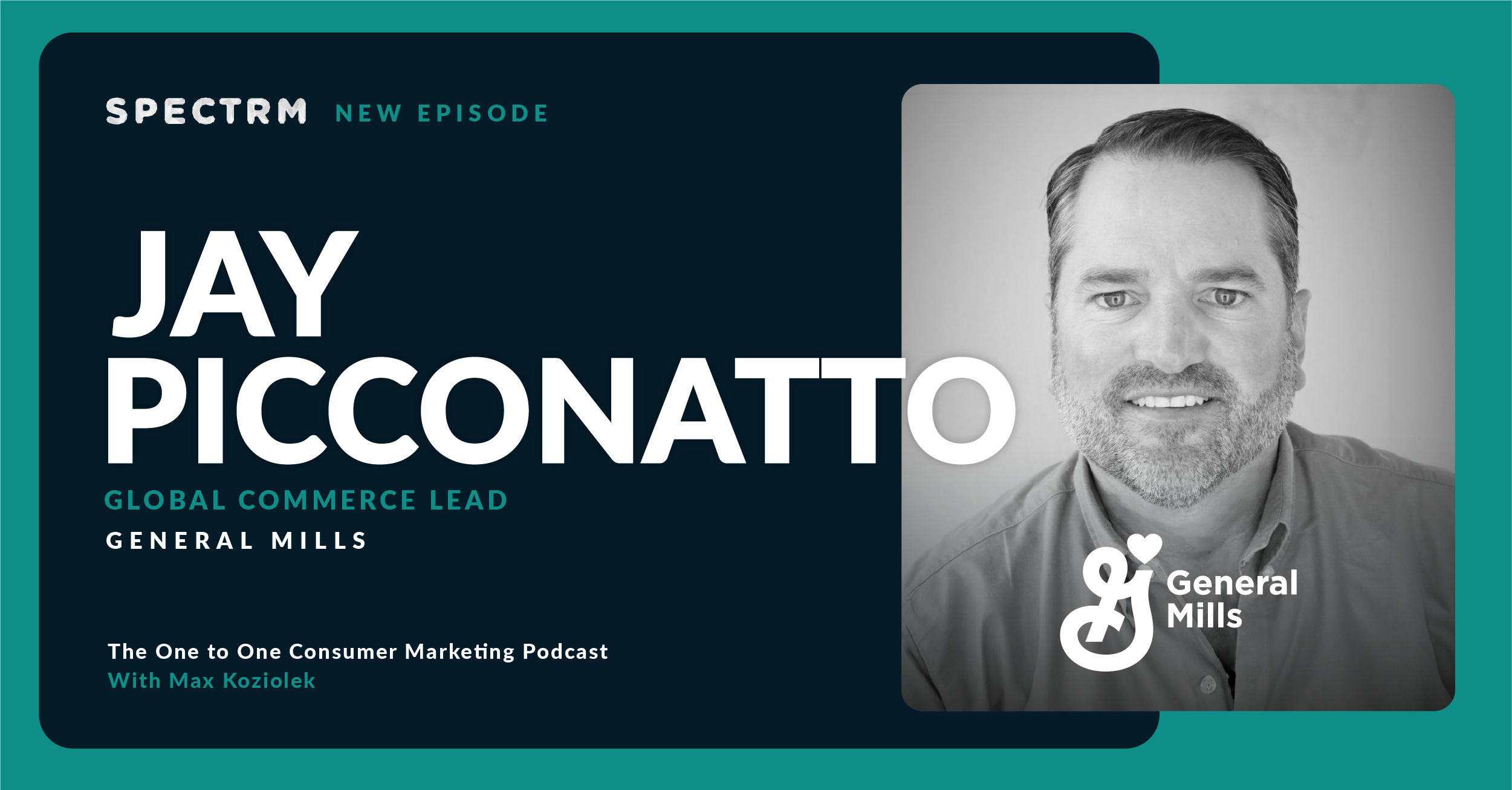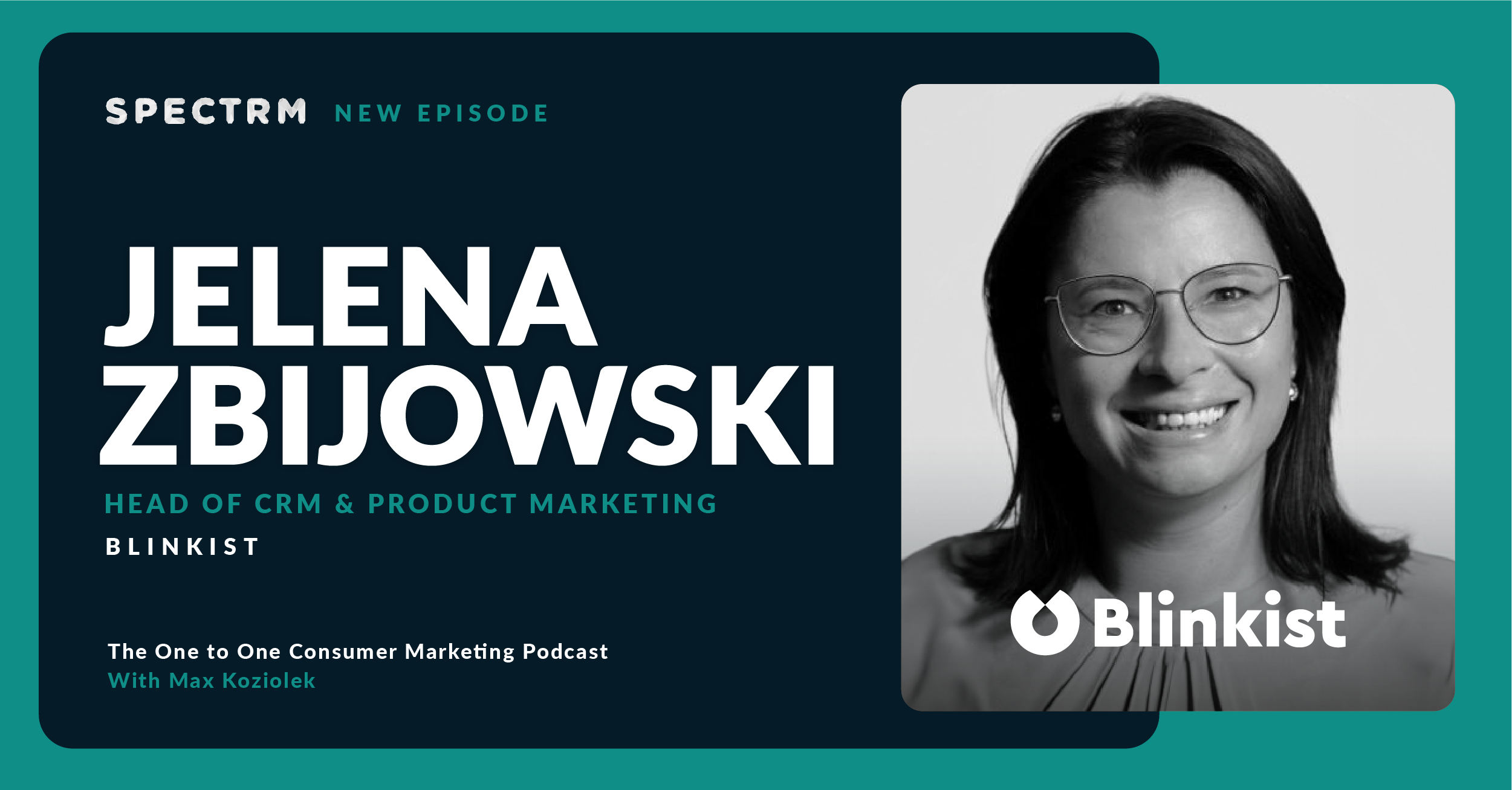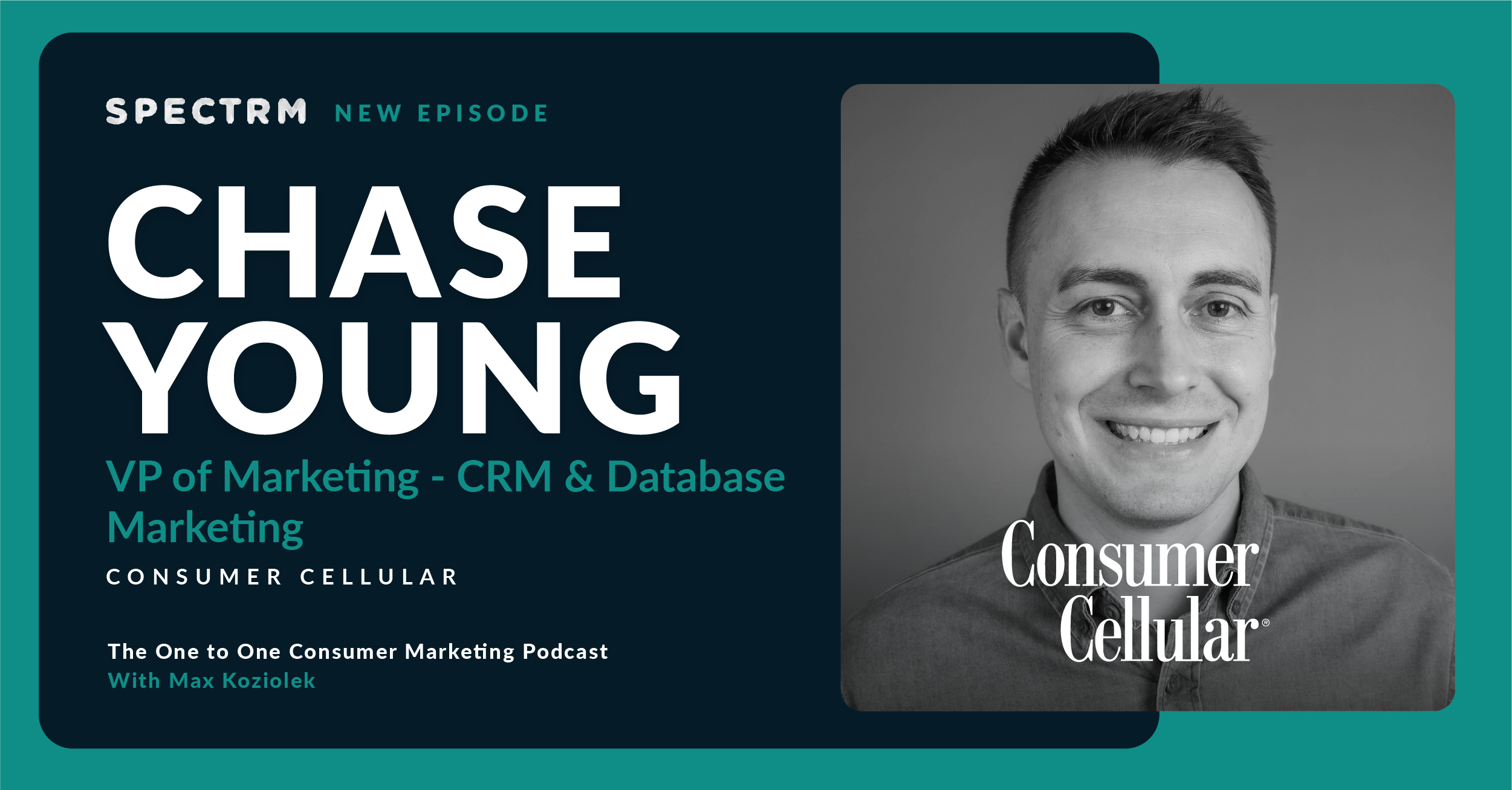Summary
On this episode of One-to-One Conversational Marketing, Ben speaks with Cécile Moser, Head of Marketing & Communication at one of Zurich’s premier premium department stores, Jelmoli. From a background in journalism and PR, like many other creative individuals, Cécile found her way into the marketing space and helped transform a legendary brick-and-mortar store into the e-commerce powerhouse it is today.
She speaks to us about the state of consumer marketing in the digital era, combining strategies between cyberspace and brick-and-mortar stores, and why youth engagement is key to keeping the pioneering spirit alive for a department store approaching the end of its second century in business. Her approach to marketing balances the digital and physical worlds, bringing together the best of each one to create a truly omnichannel approach to personal, strategic consumer marketing.
Topics discussed
- Top choices for today’s marketing channels, and why diversity in your approach is key
- Balancing the online and offline marketing approaches, and how to integrate them where possible
- Planning cycles, the real work of consumer marketing, and how to stay agile while also thinking a year ahead
- Digital marketing channels, knowing your market, and why LinkedIn is a good choice for a premium retail business
- The youth factor and why digital natives are crucial to effective TikTok activation, both to drive e-commerce traffic and footfall in store.
- Personalization at scale and nourishing your existing customer base with loyalty programs, exclusive benefits, and hyper-targeted engagements
- Identity and longevity for a heritage business in a constantly shifting marketplace
- Metaverse activation in a brick and mortar store, why starting small is a great learning experience
- Why keeping close to customers is the perfect supplement for detailed big data analyses
Guest biography
For us, digital marketing and digital channels are important, but we also invest a lot still in live marketing events, face to face interaction. I think this is also as important as digital marketing.

- Head of Marketing & Communication bei Jelmoli
- Board Member of SAMBA
Company overview
Jelmoli is the largest omnichannel premium department store in Switzerland. The traditional store on Bahnhofstrasse and at Zurich Airport in the Airside Center and Circle inspires with a finely curated range of 1,000 brands from all over the world, rounded off by a convincing range of services and events.
Industry: retail | www.jelmoli.ch
Subscribe to the podcast newsletter
Transcript
00:00
Welcome to One to One: The Conversational Marketing podcast dedicated to helping modern marketing teams succeed in a messaging first and privacy first world. In each episode, we’ll interview a marketer who is winning with conversational marketing to distill best practices, lessons learned, and actionable takeaways. Here’s your host, Ben Gibert, VP of Marketing, Spectrm.
00:32
Ben Gibert
Hey, everyone, and thanks for listening to One to One: The Conversational Marketing podcast. Today I’m speaking with Cecile Moser, head of marketing and communication at Jelmoli, a premium department store in Zurich. Cecile, thanks for joining the podcast today, and thanks so much for chatting with me.
00:49
Cecile Moser
Hi, Ben. Yeah, thanks for having me. Looking forward to the chat.
00:53
Ben Gibert
Yeah, me too. It’s been quite a long time since I’ve been to Zurich, but I’m pretty sure I’ve probably walked by Jelmoli, but it has been a while. Really looking forward to hearing more about the brand, your current challenges, and also how you’ve kind of transformed into an ecommerce powerhouse. I think before we get started, why don’t you tell me more about yourself, your background, and how you ended up at your current role in Jeremuni.
01:23
Cecile Moser
Yeah, sure, of course I can well, I didn’t study marketing or communications. I studied German studies and cultural studies here at the university and also in Berlin. I started to work in journalism. I went to PR agencies. I switched to PR, started at PR agencies, and then started to work in companies in the role as a PR manager, also internationally. Yeah. I came to Jelmoli, the department store here in the heart of Zurich. After a year, I was able to take over this role as head of marketing and communications, which I’m doing now for two years. We are a team of 13 people. And, yeah, it’s a lot of fun. It’s never boring. We have a lot of interesting projects and topics and yeah, happy to tell you more about it.
02:10
Ben Gibert
Yeah, thank you. I have to apologize already for having mispronounced Jelmoli.
02:15
Cecile Moser
No worries.
02:17
Ben Gibert
That’s a good place to start. Yeah, I guess, like most people in marketing that I’ve met, not always necessarily studying marketing, but we fall into it somehow. Creative people, analytical people love to come into marketing when it comes to their careers. It’s not an uncommon career path, I think. Before we talk about Jelmoli and some of the things that you’re doing there, specifically, I’d love to hear how you’re thinking about consumer marketing today and kind of what the state of digital marketing is in general.
02:47
Cecile Moser
Yeah, I think it’s very interesting. It’s, of course, also changing a lot, especially when it comes to digital marketing. And all the channels. Almost every week you hear about new channels. And, of course, then you need to evaluate if it’s important for your business and which channels you use, how with which content, and yeah, of course, for us, digital marketing is very important and is of course also becoming more and more important, especially the whole social media channels. Of course also the classical digital marketing with ads and everything campaigns and also a very important tool for us is also newsletters of course with our CRM database where we can select the exact right clients for the different topics. Yeah, as you mentioned, of course we have the whole digital business and we are growing a lot in ecommerce and the whole omnichannel strategy is very important.
03:41
Cecile Moser
Still our core business is here, our big department store at bonus 24,000, huge space and also nice to have that much space here at this very prime street where we are located. For us, digital marketing and digital channels are important, but we also invest a lot still in live marketing events, face to face interaction. I think this is also as important as digital marketing.
04:09
Ben Gibert
Yeah, that makes sense with such a strong prime retail location right downtown Zurich that would also continue to be a priority and that’s also your heritage as a retail brand. Can you talk me through and the listeners how you balance those things? You mentioned having digital channels but you also focus on live events, on the store itself when it comes to making your plans or how you think about long term, how do you balance that?
04:37
Cecile Moser
Yeah, I mean we have how you call it, 360 degrees communication planning far in advance. We like plan in three different seasons. That comes from the retail business. We plan in the spring, summer season, fall, winter and Christmas is like separately because it’s so important for us. We plan almost one year in advance. The marketing plan yeah, is made almost one year or at least ten months, I would say in advance. And then we plan everything. Of course it depends a bit on the topics you have, if it’s a campaign topic or you plan an awareness campaign on something or for example, for us, what is important, if we have a lot of rebuilding also we rebuild a lot of spaces because you need to get the new retail trends and everything. Or last year we opened an area, it’s called Spotlight, which is like the hottest streetwear brands for very younger generations and clients.
05:31
Cecile Moser
Of course you plan a big opening party for this department. Yeah, it depends also a bit what is happening here in the house and yeah, then we plan the different activities and of course you also try to link them then on the different channels that the topic is all over. Yeah, I think that’s how the planning goes. Of course we are working very closely together with the buying team and the visual merchandising team. These are the closest teams we work with, plan the activities.
06:03
Ben Gibert
Nice. Yeah, thank you for that. Overview. I think it’s always helpful for our listeners as well to hear about that planning cycle. I think also you mentioned testing different channels, staying on top of trends in digital channels as well. I imagine sometimes that can be challenging when all of your planning cycles are one year in advance to stay agile. You also mentioned email as something and kind of CRM retention, nurturing your existing customer base as being a very important channel for you. Can you walk me through maybe the mix of channels that you are using and which ones you’re seeing work best right now?
06:39
Cecile Moser
Yeah, sure. I think when it comes to social media, the channels that work for us best are right now Instagram and LinkedIn. LinkedIn and I think is on two sides, very interesting. One side is of course the whole employer branding, which is becoming more and more important also when it comes to the Gen Z and all these needs, I think employee branding is very important. Of course, on the other hand, people who are active on that platform on LinkedIn, they mostly have a higher education level, they have good jobs, they’re spending more money on shopping and stuff like that. As you said in the beginning, we are in the premium section, so people need to have a bit of buying power. Therefore, LinkedIn is also a very interesting channel for us. We started also last year with TikTok for the whole younger generations, Gen Z topic and also this Spotlight area.
07:32
Cecile Moser
Also in general, I think what we see is that younger generations, the Gen Z, of course, they are digital natives and they also do a lot of online shopping, but they also do this kind of group shopping. You see, for example, on Wednesday afternoon that the school is off here in Switzerland. It’s like almost in all the areas. You really have these groups of young people here at Gilmoli shopping together or at least trying on the products. Yeah, they’re also very athene or yeah, they really are into these labels and brands, I think even more than maybe Millennials or our generation. So, yeah, we started with TikTok as a new channel and it is going very well. Of course also the whole newsletter, we still also have a print magazine that comes out twice a year. It’s also running very good. We also of course have a lot of interaction.
08:21
Cecile Moser
We have over 1000 brands and a lot of brands, they book like different activations. Here at Jelmoli you have annual budget then, and then you plan the different activations on the different channels. You try to figure out, of course a good mix. What we don’t use right now or yeah, I think also not in the near future is Twitter or Snapchat. Twitter in general is not that big in Switzerland, maybe when it comes topics like politics or something like that. For us it’s not a channel that we use right now.
08:54
Ben Gibert
Thank you for that overview. I think there’s some very interesting things we can dive into there. I’m surprised to hear you say LinkedIn. I don’t hear so many retail brands mention LinkedIn as a channel that works well for them. The context that you provided, I think gives a good reason as to why that works. Right. Going after the higher purchase power, consumers that are essentially a bit better educated are more active in those spaces. So, I think. Yeah. Interesting. I’d love to hear a bit more what type of marketing you actually do on LinkedIn because I think it’s an interesting way to integrate into a feed. I know you mentioned employer branding as a big one, but on the actual brand marketing side or on the selling the products that you have in store, I’d love to hear more about that. Also very interesting how you talked about Gen Z and wanting to come shop in store, like in retail.
09:42
Ben Gibert
And have you used that? Have you used TikTok as an activation channel to also try to bring foot traffic into the store? Or is it more like a pure ecommerce play for you?
09:57
Cecile Moser
Yeah, no, actually we also use TikTok to bring them to the store. We had the actual campaign together with Adidas. We tried it out with a very famous TikTok here from Switzerland. And, yeah, it went very well. Of course, also our market team in general, we are 30 plus. We realized the TikTok channel with our it’s not the trainees. I don’t know. In Switzerland, if you learn a job.
10:24
Ben Gibert
It’S like you get an apprenticeship, kind of.
10:27
Cecile Moser
Yeah, exactly. Before you do a trainee position. We do it together with them because they have the age and are the target group. For them, it’s also a very nice interaction, nice to be part of this channel. Because I think when it comes to TikTok, it’s even more than on the other channels. You need to exactly use the right music, all these details. If you are not into that coding, let’s call it like that, then the content doesn’t work. It’s very interesting, but very specific.
11:04
Ben Gibert
Yeah, I believe it. You’re creating content through those apprenticeship programs, through those young people that are kind of posting that. Do you work with influencers on TikTok or is it more coming directly from the Yamuli brand on TikTok? That’s how you’re engaging a lot of people.
11:19
Cecile Moser
Far, we mostly do on our Jelmoli channel like content. We also tried it out with influencers and it also worked very well. The prices are quite high from the TikTokers, I must say. We are still in the beginning there. We do it now a bit more than one year. We still try to find out what works. Good. Yeah, so far, we haven’t done that many influencer corporations on TikTok, but of course, it’s also getting more or as I mentioned, the example with Adidas was very nice because they came to us and said, oh, we have this idea, therefore we are also very open if brands have good ideas, of course.
11:57
Ben Gibert
Yeah, very interesting. Can we maybe jump back to the LinkedIn, given that’s such a unique thing, at least in my experience, for kind of a premium retail brand to be advertising there? Can you tell me and our listeners about your strategy there and what you’ve seen work?
12:13
Cecile Moser
Well, yeah, sure. I mean, we’re not having a super special strategy for that channel. We just try to communicate all our topics we have coming from our marketing plan. Or for example, if you have interesting interviews or stuff like that in the media, like interesting PR stories or stuff clippings, we try to share it there. Of course, we also try to use these general rules that you mark, maybe your partners, and then you comment on the postings and everything so you get more reach and more people see your postings. Yeah, I think we just try to use it as a normal communication channel when it comes to our topics. It can be, of course, like a more serious topic. Or we refurnished or rebuilt the whole women’s department. We had a big opening party here. You have some pictures or images from the new department, or then sometimes it’s something more from the back office.
13:09
Cecile Moser
For example, were, like, collecting clothes from our warehouse and we sent it to the Ukraine to people from there. We did, for example, posting about these interactions. I think it can have different backgrounds. Of course, what is always performing best is when you see people, or people from Yelmi. We also have sometimes we interview with stuff from Jelmoli. Yeah, I think if you have faces and the direct link to the company is still the best performing things.
13:42
Ben Gibert
Okay, yeah. Very much almost behind the scenes, making the Jelmoli brand more personal, more accessible to people on the platform. Yeah, okay, that makes sense. I mean, I think every brand these days, we touched on the personal side. People are trying to personalize their marketing for customers more and more. Obviously a big challenge at scale, and I think at the scale that you’re talking about, generally, there’s one main store, but you’re also operating an ecommerce store. Can you walk us through how you’re currently connecting with customers and how you personalize that scale?
14:19
Cecile Moser
Yeah, I must say, honestly, were a bit late when it comes to this whole ecommerce business. We built the online store now two years ago, and now it’s getting better and the performance is growing, of course. Yeah, of course. We have a lot of competitors already, so it’s also a very difficult field, of course, but yeah, as you say nowadays it’s a must and we clearly have a very connected omnichannel strategy. We try to link all the channels. We also try to get like features also in the online store or of course you can something like reserve online and then pick it up in the store if you prefer it like that. I think the general gadgets and services you have when it comes to ecommerce and the online store is growing and growing. Of course, it’s also a lot of communication between the different teams here so that we have the same product in the store and in the e store, and then also post the right thing on Instagram that all is linked and available at the same point of time.
15:30
Cecile Moser
Yeah, we’re very happy and it’s getting better and better.
15:34
Ben Gibert
My next question was going to be obviously the skills are maybe different like digital marketing versus in store experiential retail marketing. How does that work for your team? Do you have specialists on the ecom side? Do you have people that are purely in retail? Is there cooperation? How do you collaborate between the teams? Can you walk through the team structure and how that works for you?
15:57
Cecile Moser
Yeah, sure. I must say the whole Ecommerce part is not located by me and my team. It’s a different team. It’s the whole ecommerce and data analytics team. We also sit right next to each other. Here is the marketing team and here is the Ecom team and we work of course very closely together. We have almost daily meetings. We have once a week we have a big planning meeting where we plan all the content, all the newsletters, social media postings and as I mentioned that all the products are also available then and online. It needs a lot of communication, it’s a lot of fun also to work as close together with them. There’s also one person in the Ecommerce team that is really specialized into digital marketing. If you plan awareness campaigns, for example, it’s together our people from the marketing team who are responsible for that together with them from the ecommerce.
16:52
Cecile Moser
We try to include all the people that are needed to get the best result and be as less hierarchic as necessary. Of course.
17:01
Ben Gibert
Yeah, very interesting. The decision to split ecommerce kind of and build that out separately as a function or a business unit within the team, but you obviously work very closely with them. Even like a digital marketing campaign execution, you would guide that as being kind of the marketing department, but the actual execution would sit with your specialist in the ecommerce kind of unit. Yeah, okay.
17:26
Cecile Moser
Of course also this person is working very closely together with our social media. The social media person or responsible person is located in the marketing and then they work very closely together.
17:38
Ben Gibert
So yeah, nice. Yeah. Thank you for the overview. It’s always helpful. It’s very interesting to see how different businesses structure that, especially someone like Yemeni, who’s coming more from the traditional retail space and going into ecommerce. I think the methods for how businesses try to drive that digital transformation can be quite different. It’s always interesting to hear how that’s being done. I think, going back you had mentioned email and kind of CRM activation. Can you walk through maybe on that side, what you’re currently doing to connect one to one with customers? Or when you’re doing those types of activations, what are the kind of tactics that you’re using?
18:16
Cecile Moser
Yeah, I mean, we have very a lot of topics and content. We have our own topics and campaigns, and as I mentioned, also a lot of bookings from the brand. It’s always very challenging to include all this stuff together and focus on the right things. For this part, we work very closely with the CRM team because, as you cannot send out six newsletters per week to all the CRM, the bank. Afterwards, you don’t have any contacts anymore. They all disconnect from the newsletters. We try to really find the right target group for each topic, try to make different selections for each topic. Also, when it’s an event, of course, we have a loyalty program. You have three different scales. Depends on how much you are spending here at Yannui. Then, of course, we have our royal clients, and they are treated, of course, very special.
19:19
Cecile Moser
So, for example, tonight we have a very nice event here with a famous cook from Switzerland, Andreas Caminada. He’s one of the best cooks in the world, and he’s here today and cooking with his crew. So, of course, for example, for an event like that, we are very selectively when it comes to the invitations. It’s for the royal clients and for the clients that spend a lot of money in the food market, in the food department. We also have a big food department here. We try to always find the right selection and target group.
19:52
Ben Gibert
Interesting. Okay. Yeah, I’m sure that’s going to be a great event. You really do this segmentation in your CRM based on kind of the customer lifetime value that you’ve calculated, and then you have this royal tier. Yeah. Interesting to see how you then so do you use digital channels like email to then activate those customers to come into this event with the cook, for example?
20:16
Cecile Moser
Yeah, exactly. We also used to do a lot of printed invitations, but we almost don’t do it anymore because it’s not that efficient. It also works very well now with the email version, with the email invitation, also with the royal clients. We almost only do it digitally through email.
20:39
Ben Gibert
Yeah, we’ve seen that as well with customers at Spectrm who have the big retail stores used to do a lot of flier campaigns and they’re now switching to digital flyers and running those kind of flier campaigns through things like messenger or Instagram. It’s very interesting to hear you talk about the efficiency of that because we’ve seen the same thing that customers are not finding it so efficient and it’s also very difficult to track the efficiency. You don’t really understand engagement either. I think so the market is also shifting in that direction. But yeah, thank you for the overview. I think just obviously many brands will tier their customers like that, but it’s always nice to see specific examples of things like your Royal Customer tier, which are your most valued, kind of high value customers, and then the types of the things that you roll out to make them feel special, right.
21:28
Ben Gibert
To make them feel a lot of affinity with Jelmoli. I’d love to maybe take a step back . Thanks a lot for going through specific things at Jelmoli. I think if we’re taking a step back and looking at the market kind of what do you think are some of the most exciting things that are happening in consumer marketing at the moment?
21:47
Cecile Moser
Yeah, I think what was very present this year here for us are like two very interesting topics. I think one was the Metaverse. We entered the Metaverse in June with the project together with STF. It’s like the Swiss Textile Institute and with Theme, it’s a Shanzi agency that became very huge. Now here in Switzerland, they do a lot of consulting in this area. Yeah. This topic, I mean, it’s all over. We had several interactions with the topic and the idea came up to maybe just try it out. I think this is a field where you really need to make your own experiences and that was also the goal we wanted to reach or like what we wanted to target with this project. Yeah, it was very interesting. Then, of course, we got several other requests. We had, of course, a lot of PR and yeah, you can imagine with these topics.
22:41
Cecile Moser
Now we even have a second Metaverse topic together with Metablocks. It’s like the first with Metaverse. There we are going to build next year like the Jelmoli store of the future, where it will be interesting look and what will be in this Jelmoli. Because the idea is not just to rebuild what we have here. We really want to build like the Jelmoli of the future. Right now we are in that phase where we are interacting with the Gen Z, like these younger generations, and we want to ask them what needs the Jelmoli of the future in the Metaverse? We will try to reach them through different channels, Instagram, but also maybe TikTok and newsletter and try to find out they can send us their ideas and then we will evaluate what we can use and what is maybe too complicated. I think that was one topic and of course it’s also a new channel for us to sell stuff products there.
23:40
Cecile Moser
We have brands here as Adidas or Puma. They are already very far when it comes to that topic and so for us it was also important to be like a first mover and we’re becoming 190 years old next year so like this pioneer spirit is in our DNA and we also wanted to move on like that. When it comes to the metaverse, the other topic I think is the whole sustainability strategy because nowadays almost every company needs to have one and needs to communicate this strategy. We started with it like one and a half years ago and last year we really made it part of our whole company strategy. I think when it comes to this topic, credibility is everything. It’s very important that these departments work very closely and good together. With the marketing, that you can communicate these topics in the right way, that you get the credibility and that you don’t get into this screen washing corner, that you find the right messages.
24:44
Cecile Moser
Yeah, we for example did also an awareness campaign then last spring and we have an six ambassador, it’s an influencer from Switzerland who is talking for us about this topic and so we try to figure out different activations to communicate these things.
25:02
Ben Gibert
Yeah, so it sounds like a lot of focus on the future really, right. In terms of sustainability, the metaverse, I think there’s a lot of opportunity there for you. Obviously you have would you say it was 28,000 m² in Zurich right now? There’s more square meters in the metaverse too, so you can expand much more quickly than you probably could on Bonhoef Schlassen Zurich. I think it’s very interesting to see you lean into that, especially as you said, the brand is 190 years old. It’s an old Swiss business to be so forward looking and trying to get into that space as a first mover. I think there’s a lot of potential there and as you said, to also capture Gen Z who are thinking a lot more about sustainability and the way that they make purchase decisions and also operating more in these digital spaces to secure your growth over the next 1020 years, that will be a key demographic to go after.
25:58
Ben Gibert
Thank you for sharing how you’re envisioning that. Can you maybe share about the specific? You mentioned you did one kind of metaverse activation already and you’re planning a second. Can you share a few things that you learned maybe or like what was the activation and then what would you do differently or what would you do again with the next one?
26:15
Cecile Moser
Yeah, the one I mentioned we did with the Swiss Textile Institute. It was a project with students and they always had annual project that comes with an overall topic. It was called The Power of Craft and it was about old Swiss materials like hemp and stuff like that. The students have to design something to their topic. There were like 80 pieces and we displayed them here at Jelmoli. There was a voting in March where people could vote, which is like their favorite piece. Like the ten best pieces, they really went into production afterwards and have been sold here at Jelmoli. Then in June. Right at that point of time, the Metaverse topic came up and became bigger and bigger. We had this idea together with theme why not designing these ten pieces, these ten winning pieces now also as NFTs for the Metaverse and sell them in the Metaverse?
27:11
Cecile Moser
I think it was a good starting project because it was not too big. We were able to handle it though it was much more work we resolved in the beginning like programming these NFTs and then also that the quality of the NFTs was good enough to display them in the Metaverse and also at the Avatars. It was much more difficult than we thought in the beginning. This was all the part the Swiss Textile Institute did not yet fully and yeah, there were some things you don’t think about in the beginning or of course and also the whole payment system. We needed to have a valid then that we can accept the crypto currencies and everything and also the POS. How do you plan the point of sale here now then in the store with the oculus glasses that the topic is clear up from the beginning but still you had these physical pieces like these ten winning pieces and yeah, so I think we had a lot of it was a very interesting time.
28:14
Cecile Moser
We worked very closely together like these three companies Jelmoli, Estef and Theme. We did a nice launch event in June and we had also a lot of guests and press and also other companies here. Yeah, was a very interesting phase and I think what is also very special about the Metaverse topic right now, nobody knows exactly what will come and you just have to try it out and make your learnings.
28:45
Ben Gibert
I love that. I think the Metaverse often can seem like a purely digital thing that is intangible and that is connecting people very far away. It sounds also like your activation was very much focused on community and kind of engaging the community within Zurich, within Switzerland, focusing on craft in Switzerland and also bringing in local schools, local other brands. I think that’s a very nice blending of the two and I can appreciate there were probably a lot of logistics, like you said, that were maybe unexpected in terms of POS payments, all of the things that are already difficult in. Retail being compounded by the addition of a digital layer. I’m sure there’s plenty of things that you will have taken for your next activation. Part of the way that we like to finish up on the podcast here is looking towards what you have for advice for marketers now and also what you see as the future.
29:41
Ben Gibert
It sounds like based on some of those topics. Obviously the Metaverse is a part of that discussion but I’d love to hear kind of what are the top three pieces of advice that you would have for other consumer marketers today?
29:53
Cecile Moser
Yeah, I think one point is definitely as already mentioned before, don’t miss the whole Gen Z needs and desires like get in touch with them because these are the clients maybe already from today or then at least from tomorrow. Of course you also need to communicate with your whole loyalty customers and everything. I think this interaction with younger generations is very important and also very interesting. Me personally, what I really also like to do and helps me a lot if we have the events, I also go to these events and I talk to our clients or sometimes if we have intense sale periods, also now, in Christmas time, they always ask if you can also help in sales, like in store. I always do that because we’re sitting here in our marketing offices thinking about the clients we think, or, yeah, we see in the database, but yeah, they’re right next to us.
30:48
Cecile Moser
I mean we have the offices right next to the department store here and so I really try to use also these locations to get in touch with the clients, talk to them and get like a straight feedback. Of course it’s like not the whole big data then, but yeah, you get impressions and I think they’re very precious. Of course, the whole theorem topic is very important and you need to collect as much data as you can and then, yeah, you can get better and better when it comes to personalized communication and also generating more sales. Of course I think this is also the interesting mix then between the different channels and sources.
31:32
Ben Gibert
Yeah, absolutely, I like that. I think obviously focusing on the younger generations without forgetting your royals here probably for now, I think you also at yellow that’s being close to the customer is something that not all ecommerce brands have, right. Your ability like you said, to actually walk into your store and talk directly to customers is such a valuable asset that it’s easy sometimes to focus exclusively on the data and forget that sometimes the most valuable insights come from just talking directly to people. I think that’s also a great point but also to looking forward to focus on the data as well. I think the metaverse I spoke with someone on the podcast probably a few months ago now that was talking about how every 5 seconds in the metaverse generates like millions of data points from the experience. How marketers are going to be able to activate that in the future is still a problem that no one has fully solved.
32:23
Ben Gibert
That will be a very exciting one in the future, ending on that 5 years from now. What do you think the future of consumer marketing will look like?
32:34
Cecile Moser
I think the channels maybe change, or like the importance of the channels. I mean, we saw it with Facebook, it’s almost dead, we’re still using it. For some target groups, of course still important, but I think the channels, they will of course change, but I think the needs from human beings, they won’t change. Maybe the stuff like, as I mentioned, the sustainability topic, I think the customers, the younger customers, for them it’s much more important than for older generations. Maybe the way how you communicate and on which channels, but I think the mix that you still also need to have life, marketing, emotional experiences together with your clients, I think that makes a very strong bonding with the brand. I think in the way of the activations. I think they won’t change that much. I think more in the channels and in the way how you communicate.
33:31
Ben Gibert
Yeah, norms, I guess, change, our awareness changes, channels change, but we’re still humans at the end of the day and there’s a specific way that you can connect with humans. Like you said, a lot of that comes down to messaging and the way that you choose to interact. I think, yeah, that’s a great point to end on. Cecile, thank you so much for taking time out of your day to speak to us. I think it was really interesting to hear your unique perspective coming from such an established old school. Not traditional, but just with so much history behind it, like Jelmoli, but that’s also clearly very forward looking. If people want to follow your journey and hear more about what you’re doing, where should they go?
34:11
Cecile Moser
Jelmoli, I mean, you find all the details on Jelmoli and on Instagram. It’s also Jelmoli also on LinkedIn. I think the best is if you go on the website Jelmoli, and then you find all the details and also all the specific links for the social media channels.
34:31
Ben Gibert
Great. Well, yeah, thank you so much for all our listeners. Obviously, if this is your first time listening to an episode, don’t forget to subscribe to the podcast or go to LinkedIn and check out Spectrm to hear more about what we do. It’s been a pleasure speaking with you Cecile, thank you so much. To all our listeners, I hope you enjoyed that one as much as I did and have a great rest of your day.
